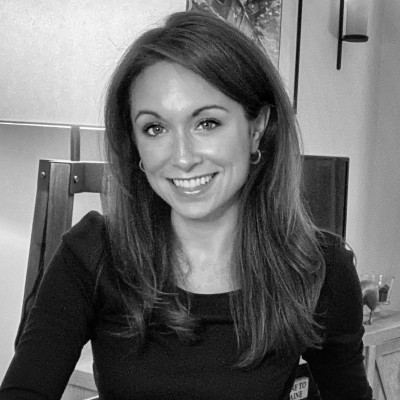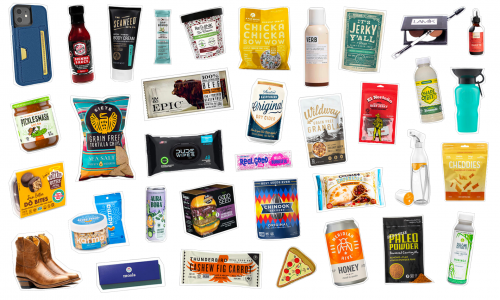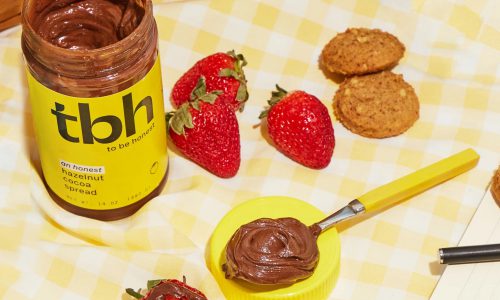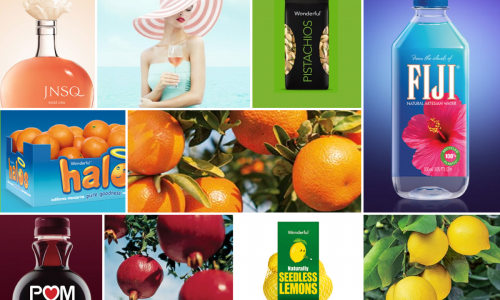Jessica Young has always had a passion for clean food. Although she didn’t set out in her career to launch an online marketplace where consumers could directly access some of the healthiest products from today’s most innovative food brands, she recognized there was a need for it.
“I was thinking of launching my own food label but a bigger issue presented itself,” she told ForceBrands. “The bigger issue in our food system is the lack of a modern distribution channel that’s fit for quality and is available at a national level.”
BUBBLE helps to solve that problem while also giving her a platform to launch her own clean-label brands. We caught up with her to learn more about BUBBLE and how the newly launched company is adapting to the current business climate.
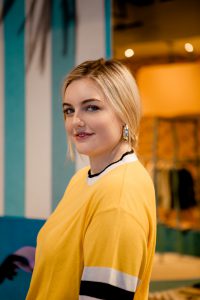 ForceBrands: You’re a Michelin-trained chef and have worked as a private chef for celebrities like Robert DeNiro and Scarlett Johansson. What inspired you to join the CPG industry?
ForceBrands: You’re a Michelin-trained chef and have worked as a private chef for celebrities like Robert DeNiro and Scarlett Johansson. What inspired you to join the CPG industry?
Jessica Young: I joined the CPG world inadvertently. I was offered an opportunity to join Hu Kitchen’s team and helped them open their kitchen as their Executive Pastry Chef. It was really inspiring to help curate their third-party products. That experience led me to become involved with meal kits and e-commerce. I worked at Daily Harvest as their Director of Product and Operations. All of these experiences led me to my greater purpose: to leverage e-commerce to create wellness-focused, truly clean label food that would ultimately have a bigger impact on the food system.
FB: Why did you launch BUBBLE? What particular need in the industry does it fill?
JY: I’ve worked for a lot of people and companies as both an employee and as an advisor, and have even launched a few brands. I was thinking of launching my own food label but a bigger issue presented itself. As an Incubator Mentor at Chobani, I’ve observed through conversations with brands that there wasn’t a specific platform for them to go B2C, which is what we were doing at Daily Harvest. The bigger issue in our food system is the lack of a modern distribution channel that’s fit for quality and is available at a national level. Chewy had a solution for pets. Sephora had a solution for beauty brands. So why wasn’t there a platform to support these food brands in one place? Recognizing this need, I left Daily Harvest to launch BUBBLE and have since launched my own line of brands into the ecosystem.
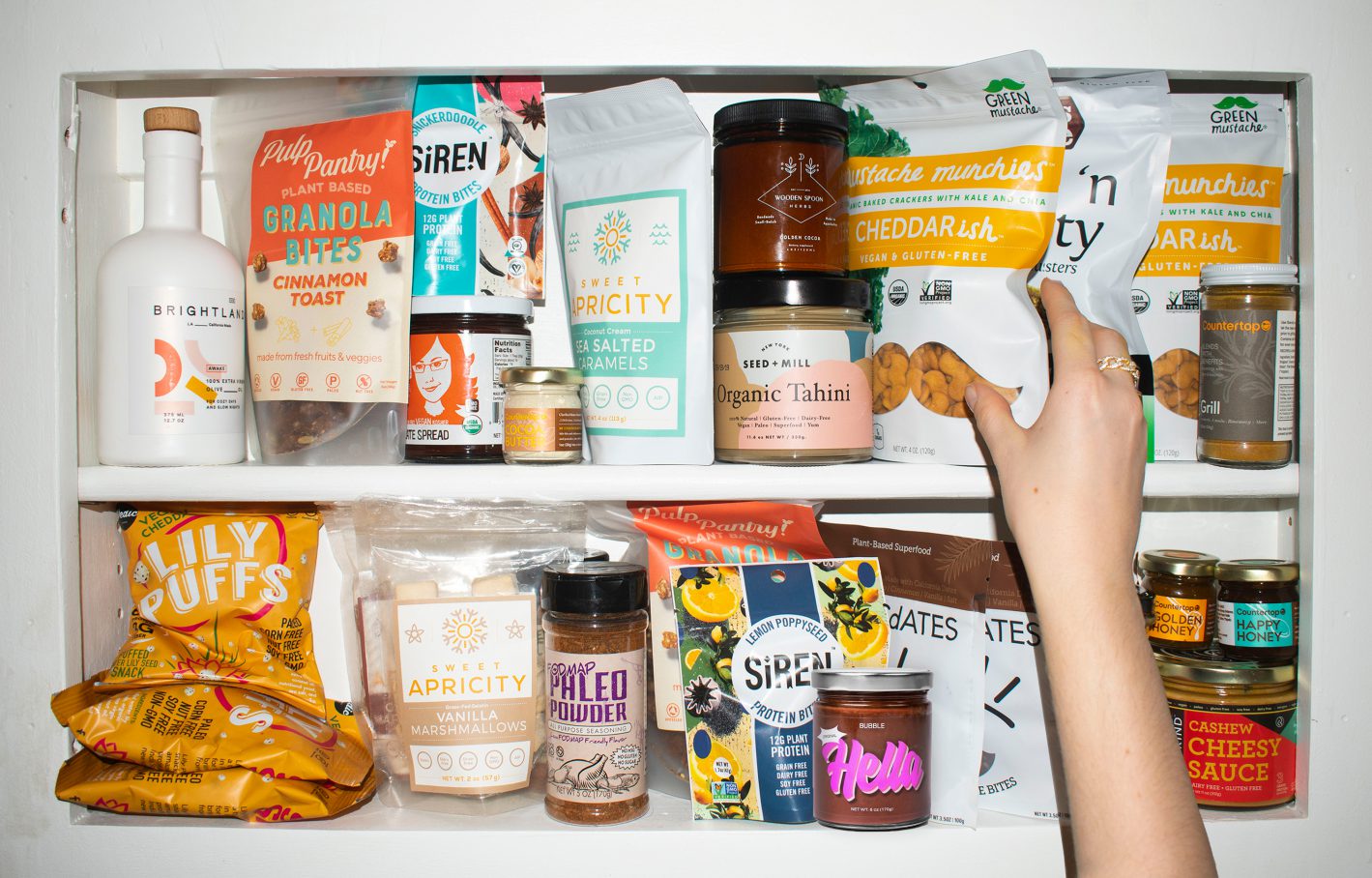
FB: BUBBLE launched in early 2019 and has since achieved impressive growth. How have you adapted to this new climate during COVID-19?
JY: We’ve been taking it in stride, day by day, and hour by hour, as the environment has been changing that quickly. A report recently came out that reflects what we’ve been seeing: before the crisis hit, 5 percent of the population was purchasing groceries online. Between 2016-2018, online groceries doubled because the market adapted to buying food online. Until 2019, the growth rate of online grocery was pretty static, growing at a steady 40 percent year-over-year rate. When COVID-19 hit, in a matter of weeks, we went from the industry magnifying from 5 to 30 percent.
For us at BUBBLE, we’re trying to keep up with demand and the massive migration of customers since the outbreak of COVID-19. We had a small team going into this and we haven’t been able to keep up with the volume of customers and carrier networks with deliveries. Even though our marketplace is hyper-localized and we’re not aggregating inventory, we’re still experiencing delays as systems on the carrier side have been overloaded with the increased volume of deliveries.
FB: What were some of the immediate business challenges you encountered during the first few weeks of March when COVID-19 began to more deeply affect the global economy?
JY: When the crisis first hit, we saw a huge uptick in the average order size as customers were stocking up. Then we also saw a shift in purchase behavior. Since we’ve launched, our most popular products have been snack goods and unique niche items. We were also really big on product discovery. When COVID-19 hit, we saw such a surge in discovery that we had to pull back on other efforts to meet this demand. Through polls to better understand our customers’ needs, we pivoted to release our bread vertical to support everyday items and started onboarding more pantry staples.
We’ve also been fielding an increased amount of brand interest in BUBBLE. By no means have we had a slowdown in brands. Many brands were affected by retail closures and a preference shift by Amazon not deeming certain ones essential. As a result, these brands have been able to join our platform.
FB: How have you pivoted the business model during this uncertain climate?
JY: One of the first things we did was get rid of our office, which was a month-to-month sublease in New York. Because BUBBLE is a young startup that’s only in its second year, I put everything into storage and put our office expenses toward a customer experience team. I had to shuffle our internal budget around really quickly and there’s been a lot of fast decision making. We’re in a great industry (fortunately, food is essential), and are seeing huge upticks, but it’s still scary not knowing what’s going to happen in two weeks.
FB: Let’s chat opportunities. What are some of the more positive narratives or business lessons that you’ve seen emerge through this pandemic?
JY: For us, specifically, we were able to prove that BUBBLE is not just for the occasional purchase, but that it’s the solution for everyday needs. If COVID-19 didn’t happen, it would have taken us much longer to achieve the traction that we have. We have an entire perishable vertical that’s going live in a matter of weeks so customers will be able to shop local produce and other goods through BUBBLE by simply entering in their zip code.
I truly believe the world as we know it has changed. I don’t think we’ll think about moving into cities the same way we used to before COVID-19. We’ve proven that we can successfully work remotely. And we’ve proven that BUBBLE is the solution for everyday grocery.
FB: How do you describe your leadership style during times of crisis? Are there any industry mentors you lean on most for advice?
JY: It’s important for me to be as transparent as possible about the business with our team. I’ve also been dedicating a lot of time to reading up on news and industry trends to become as knowledgeable as possible about what’s going on in the current environment. The decision to close our New York office was made after I examined growth curves in other countries that had endured pandemics. With the limited data points I had, I didn’t think our situation would differ that much.
Leading through crisis especially requires transparency and knowledge so I can drive my team in the right direction and communicate our struggles along the way. It’s about being transparent, well-read, and being open with discussions as we make decisions together.
In terms of industry mentors, I’ve leaned on my investors. We’re moving so quickly that there’s not enough time to make decisions but I’m trying to stay connected with them as much as possible.
FB: You have an eye for predicting the next big food and nutrition trends. What’s ahead for the industry?
JY: Traditionally, my head is so in that space, although right now I have not thought about emerging trends other than observing what’s coming in through BUBBLE. We’re entering a period that’s going to have long-term impacts. Food is a reflection of what’s going on culturally and our eating habits have changed over the course of the past few months. Home cooking is trending as we’re no longer dining out at restaurants or relying on on-the-go snacks to fuel our busy days.
Another trend I think we’ll start to see emerge is the shift from prioritizing function and stress reduction to energy-inspiring products. As we stay quarantined, we’ll want to find ways to keep motivated and productive.
Perhaps what hasn’t changed is the fact that people still care where their food is coming from. They’re still sharing pictures of their food on Instagram. They still care about the makers of products. People still want to connect to a brand beyond its product, and that’s something I don’t see going anywhere anytime soon.
Interested in learning more about building your career in the food industry? Explore our FoodForce division.
